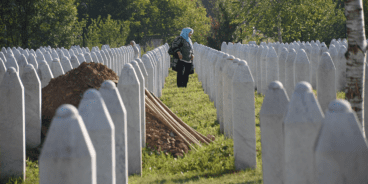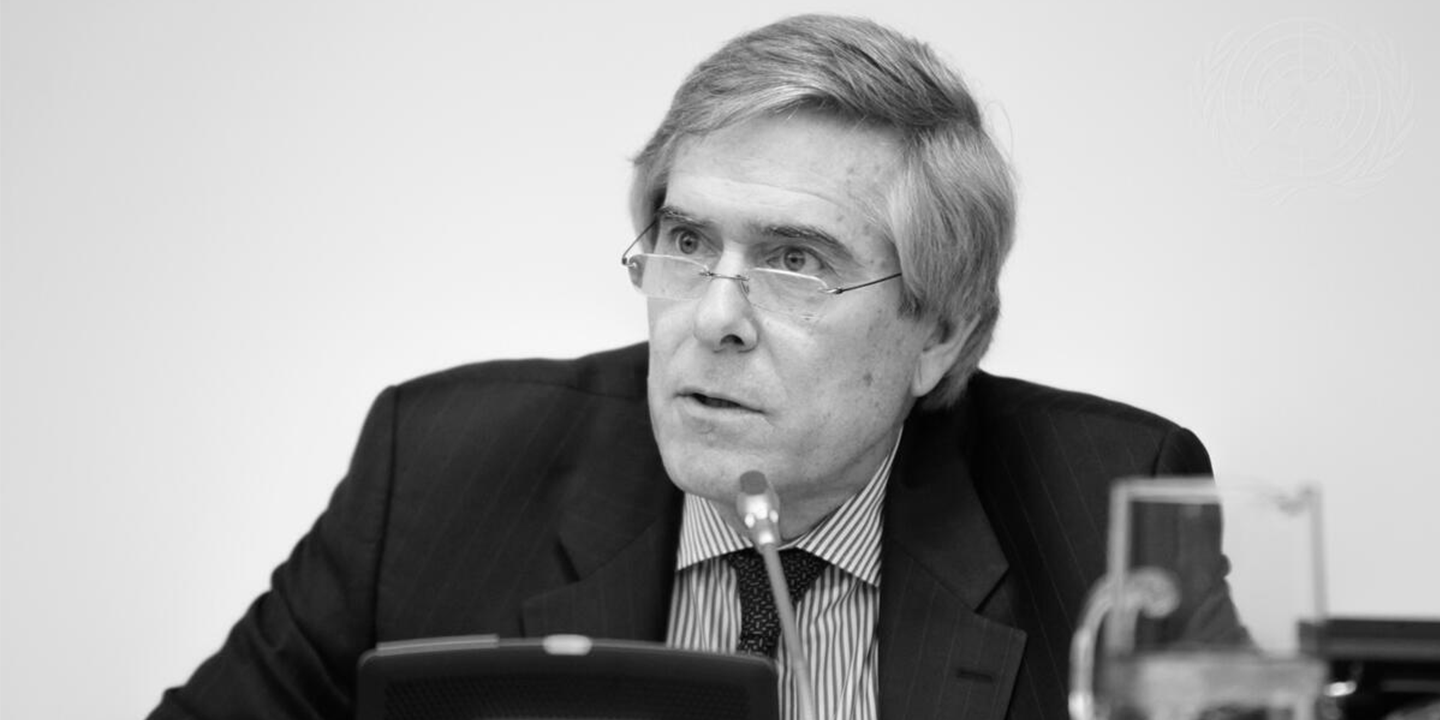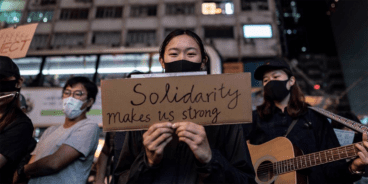

Remembering Edward Luck (1948-2021)
No one did more than Ed Luck to advance the dream of making R2P – the global community’s responsibility to protect all its peoples against genocide and other mass atrocity crimes — a reality. With his unhappily early passing at 72, still at the height of his intellectual creativity and influence, we have lost not only a great colleague and friend, but a giant contributor to the cause of human rights, decency and dignity.
Ed wore many hats during his long and extraordinarily productive professional life as an international relations professor, writer and commentator, NGO head, and global public servant. Educated at Dartmouth and Columbia, he first came to influential prominence as President and CEO of the research and advocacy-focused United Nations Association of the USA from 1984-1994, then – working within the UN system as a Senior Consultant from 1995-2003 – helped craft policies on counter-terrorism, children and armed conflict, protection of civilians, management reform, and reform of the General Assembly and Security Council.
His academic life began as Founder and Executive Director of the NYU/Princeton Center for the Study of International Organization from 1998-2001, before joining Columbia University in 2001 as Professor of Practice in International and Public Affairs, a position to which he returned in the last years of his life after a stint as Dean of the Kroc School of Peace Studies at the University of San Diego. He wrote five well-received books on arms control, conflict and international organizations; many book chapters, monographs, and academic journal articles; and many more opinion articles in major papers and journals.
But undoubtedly Ed’s most globally influential role was as Assistant Secretary-General and Special Adviser to Secretary-General Ban Ki-moon from 2008 to 2012, responsible for the conceptual, political and institutional development of the Responsibility to Protect. The reports he wrote annually for the Secretary-General were models of lucid persuasion, none more so than his first in 2009, which introduced the concept, and language, of R2P having ‘three pillars’: the responsibility of states to protect their own peoples, the responsibility of other states to assist them, and the responsibility of the global community to respond in a timely and decisive manner if a state was manifestly failing to meet its responsibilities.
At a stroke, Ed Luck’s formulation clarified beyond argument the objectives driving the convoluted language of the 2005 World Summit resolution which gave formal birth to R2P. And it added, for which I and my colleagues on the International Commission on Intervention and State Sovereignty remain forever indebted, a wholly desirable new layer of compelling clarity to the language we originally crafted in our 2001 report first introducing the concept.
R2P was Ed’s great intellectual passion, on which he continued to contribute ideas and advocacy energy throughout the last two decades of his life, not least as a hugely contributing member of the International Advisory Board of the Global Centre on the Responsibility to Protect, and in his initiation – jointly developed with his wife Dana, herself a distinguished practising psychologist – of the concept of the ‘individual responsibility to protect’, making the point that atrocity prevention and response was a personal as well as a state responsibility.
Ed’s voice was never the loudest or most assertive in the room, but invariably one of the most – and very often the most – wise, constructive and effective. Those of us who worked closely with him didn’t always agree about everything – do people passionate about policy issues ever do so? – but, with Ed, warm arguments never became cross arguments. He always understood the politics, but was never consumed by the personalities and the intrigue: it was always the issues that mattered. He didn’t seek great fame or monetary reward – just as well in the latter case, with the Special Adviser’s role paying $1 a year! His motivation was the satisfaction of knowing that the work he was doing was helping to fill an age-old gap in public policy, and prevent profound human misery and distress.
Ed was a delight to work with professionally, a model of decency, integrity, commitment and productivity. And – with Dana – he was a delight to know personally, not least as a hugely engaging dinner companion at more conferences in more countries than any of us could now remember. He will be hugely missed by the worldwide community of R2P advocates and activists, by the scholarly community, by the UN community, by his legion of friends and admirers around the world, and above all by Dana and his loving family to whom he was so devoted, and to whom all of us associated with the Global Centre offer our most heartfelt condolences.
* Gareth Evans is Chair of the International Advisory Board of the Global Centre for the Responsibility to Protect. He co-chaired the International Commission on Intervention and State Sovereignty, and was formerly Foreign Minister of Australia and President & CEO of the International Crisis Group.
Related Content


Revitalizing the Struggle for Human Rights
